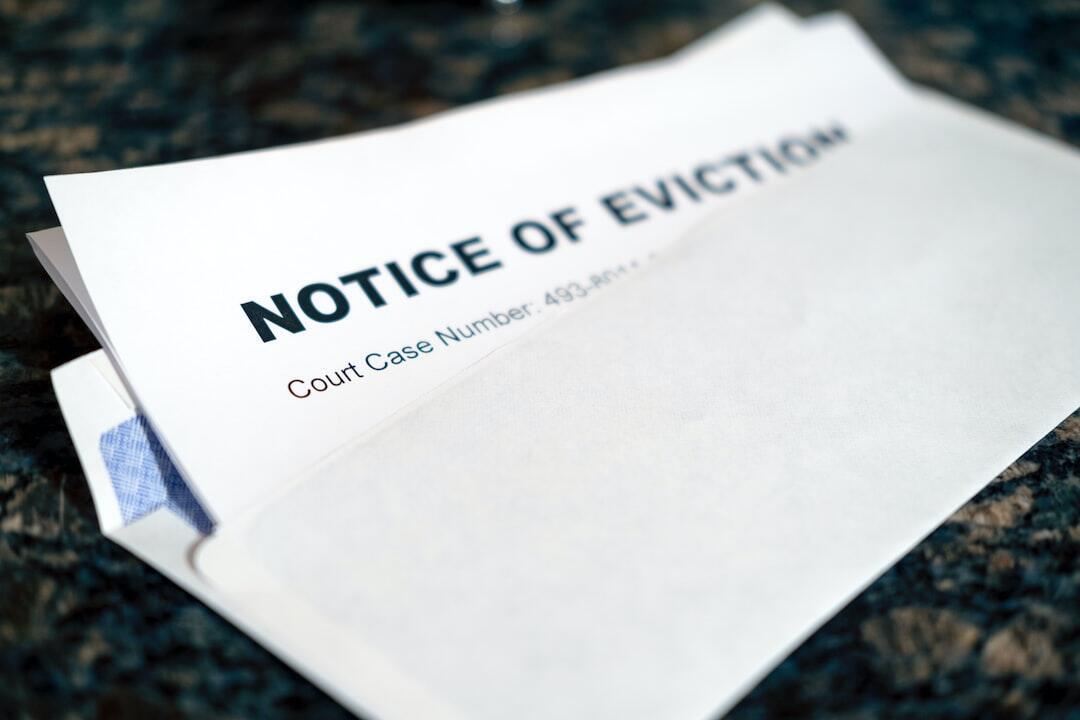If you’re a landlord in Washington facing an eviction, understanding the process is crucial. From serving notices to navigating court proceedings, each step requires attention to detail and legal compliance.
Costs and timelines can vary, so being prepared is essential. By familiarizing yourself with the procedures and seeking legal advice, you can protect your property rights and minimize risks.
Stay informed and proactive to handle any challenges that come your way during the eviction process.
Eviction Notice Requirements in Washington
How do you ensure that you serve eviction notices in compliance with Washington state requirements?
When dealing with eviction in Washington, it’s crucial to follow the Washington state eviction process meticulously. Understanding Washington squatters rights is also essential.
Make sure to serve the Rent Demand Notice, Lease Violation Notice, or Unconditional Notice to Quit correctly, giving the tenant the specified period to respond. Serve the notice through personal delivery, posting, or mailing, as required by law. Remember that landlords can seek actual damages and reasonable attorney fees.
Familiarize yourself with the procedures for filing an unlawful detainer complaint in Superior Court, including the necessary information and the filing fee. By adhering to Washington state eviction laws, you can navigate the process effectively.
Court Proceedings for Eviction
To proceed with court proceedings for eviction in Washington, ensure that you have served the necessary eviction notices in compliance with state requirements.
Once the tenant fails to respond appropriately within the designated timeframe, you, as the landlord, can file an unlawful detainer complaint in Superior Court. This initiates the court proceedings for eviction.
The court will issue a summons for the tenant to appear at a hearing, detailing the nature of the action and the relief sought. The summons must be served at least 5 days before the return day by a sheriff, deputy, or a person over 18 years old.
It’s essential for the tenant to file an answer within 20 days of the summons service to avoid a default judgment.
Filing a Complaint and Court Judgment
Once you have filed an unlawful detainer complaint in Superior Court, the next step in the Washington eviction process is to await the court’s issuance of a judgment. The court will review the complaint, evidence, and any responses from the tenant before making a decision.
If the tenant fails to respond within the specified time frame, the court may issue a default judgment in your favor. This judgment will outline the terms of the eviction, including repossession of the property and any monetary damages awarded.
Be prepared to present all necessary documentation and evidence to support your case during the court proceedings. Following the court’s judgment, you can proceed with obtaining a writ of restitution for the tenant’s removal from the property.
Evicting Squatters in Washington
After successfully obtaining a court judgment in the eviction process, the next step is addressing the process of evicting squatters in Washington. Squatters are individuals who unlawfully occupy a property without permission.
In Washington, squatters must meet specific criteria to claim possession rights, including hostile/adverse possession. If a squatter meets all criteria, they can file for adverse possession.
To remove a squatter in Washington, contact local law enforcement and follow the eviction process. It’s crucial to act promptly and follow legal procedures to regain possession of your property.
Remember to document all interactions with the squatter and seek legal advice if needed to ensure a smooth eviction process.
Costs and Considerations in Eviction Process
When considering the eviction process in Washington, factor in the potential costs and considerations.
The expenses involved in an eviction can vary, including the filing fee for the complaint at $45 and the tenant’s answer filing fee at $112. Additional losses like lost rent and time during the process should also be taken into account.
The duration of the eviction process in Washington can fluctuate based on case complexity and court workload. Factors impacting eviction costs may include court rules and procedures specific to Washington.
It’s advisable to hire an eviction attorney due to the process’s complexity, and understanding legal procedures and state laws can help you navigate the eviction process smoothly.
Conclusion
In conclusion, as a landlord in Washington state, it’s crucial to familiarize yourself with the eviction process to protect your property rights effectively.
By understanding the eviction notice requirements, court proceedings, and potential costs involved, you can navigate the process smoothly.
Seeking legal guidance is recommended to ensure compliance with local laws and procedures, minimizing risks of wrongful eviction.
Stay informed, proactive, and prepared to handle any challenges that may arise during the eviction process.




